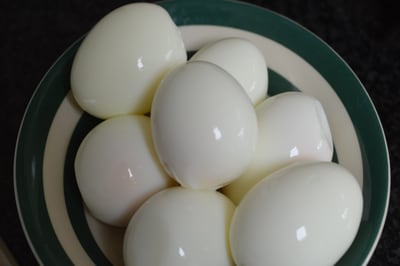Naidu to decide disqualification case of Sharad, Ali Anwar
TNN | Updated: Oct 18, 2017, 03:31 ISTHighlights
- Chairman of the upper House is qualified and empowered to take a decision on disqualification
- Naidu's decision seems influenced by precedents of privileges committee taking long to decide on disqualifications

NEW DELHI: Rajya Sabha Chairman Venkaiah Naidu has decided against referring the disqualification case of rebel Janata Dal (U) leaders Sharad Yadav and Ali Anwar to the privileges committee and will take a call on their memberships himself.
Disqualification petitions against members have been sent to the privileges committee in the past though it is not a hard and fast rule and the chairman has the discretion to settle the matter himself, raising the possibility that a decision may be taken before the winter session of Parliament due in mid-November.
In the case of the JD(U) rebels, Naidu's decision seems influenced by past experience where the privileges committee has taken 1-2 years to examine a disqualification petition. As the committee is currently headed by deputy chairman and Congress leader PJ Kurien, the possibility of the JD(U) duo not being disqualified in a hurry cannot be ruled out.
By that reckoning, the next Lok Sabha elections might arrive before their disqualification.
After the party's return to the NDA fold, the JD(U) leadership has urged swift action against Yadav and Anwar who have broken with Bihar CM Nitish Kumar and become vocal members of the opposition platform. Yadav has been replaced as leader of the JD(U) in Rajya Sabha with Nitish confidant RCP Singh.
The vice-president's office has examined the precedents in disqualification cases and found that in the case of Jai Narain Prasad Nishad, who fell out with the BJP in 2006, the MP retained his membership for two years and three months. It took that long after BJP leader Sushma Swaraj moved his disqualification plea with the privileges committee taking 10 months to submit a report.
Nishad ducked three scheduled meetings with the committee on health grounds. It took one year and four months to disqualify BSP's Isam Singh with the privileges committee taking nine months to examine the case.
Sources said the privileges committee proceedings did not add any value to the case against the MPs other than basing comments on the petitions and the responses. It is also felt that disqualification need not involve the privileges committee as the chairman of the upper House is qualified and empowered to take a decision.
The rules in the matter give the option of referring petitions for disqualification either to the privileges committee or to the chair to proceed in the matter. Since disqualification is set out under an Act of Parliament and Rajya Sabha rules, the issue is not a matter of privilege, said sources.
Naidu is understood to be examining the petitions against Sharad Yadav and Ali Anwar and their replies.
Disqualification petitions against members have been sent to the privileges committee in the past though it is not a hard and fast rule and the chairman has the discretion to settle the matter himself, raising the possibility that a decision may be taken before the winter session of Parliament due in mid-November.
In the case of the JD(U) rebels, Naidu's decision seems influenced by past experience where the privileges committee has taken 1-2 years to examine a disqualification petition. As the committee is currently headed by deputy chairman and Congress leader PJ Kurien, the possibility of the JD(U) duo not being disqualified in a hurry cannot be ruled out.
By that reckoning, the next Lok Sabha elections might arrive before their disqualification.
After the party's return to the NDA fold, the JD(U) leadership has urged swift action against Yadav and Anwar who have broken with Bihar CM Nitish Kumar and become vocal members of the opposition platform. Yadav has been replaced as leader of the JD(U) in Rajya Sabha with Nitish confidant RCP Singh.
The vice-president's office has examined the precedents in disqualification cases and found that in the case of Jai Narain Prasad Nishad, who fell out with the BJP in 2006, the MP retained his membership for two years and three months. It took that long after BJP leader Sushma Swaraj moved his disqualification plea with the privileges committee taking 10 months to submit a report.
Nishad ducked three scheduled meetings with the committee on health grounds. It took one year and four months to disqualify BSP's Isam Singh with the privileges committee taking nine months to examine the case.
Sources said the privileges committee proceedings did not add any value to the case against the MPs other than basing comments on the petitions and the responses. It is also felt that disqualification need not involve the privileges committee as the chairman of the upper House is qualified and empowered to take a decision.
The rules in the matter give the option of referring petitions for disqualification either to the privileges committee or to the chair to proceed in the matter. Since disqualification is set out under an Act of Parliament and Rajya Sabha rules, the issue is not a matter of privilege, said sources.
Naidu is understood to be examining the petitions against Sharad Yadav and Ali Anwar and their replies.
Get latest news & live updates on the go on your pc with News App. Download The Times of India news app for your device.
From around the web
More from The Times of India
From the Web
More From The Times of India

After Rahul Gandhi's poetic taunt, Smriti Irani hits back with a 'sher'

U.S. dollar up, yield curve flat, on inflation; stocks mixed

Aarushi-Hemraj murder case: Intercourse theory takes a knock

Rahul Gandhi takes swipe at PM Narendra Modi after Donald Trump's statement on Pakistan

It's official: PM Narendra Modi to launch Metro on November 28













































All Comments ()+^ Back to Top
Refrain from posting comments that are obscene, defamatory or inflammatory, and do not indulge in personal attacks, name calling or inciting hatred against any community. Help us delete comments that do not follow these guidelines by marking them offensive. Let's work together to keep the conversation civil.
HIDE